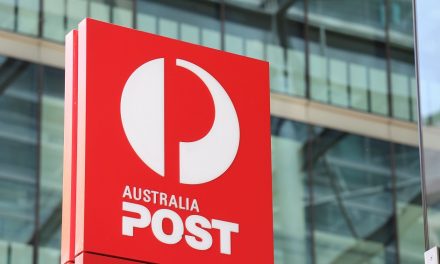
Royal Mail returns to profit
Royal Mail made a £3 million profit before tax in the first half of this financial year – the first time in five years it has been in the black at the half year.
The underlying performance showed a £55 million profit on the company’s day-to-day operations, compared to a £147 million loss in the same period a year ago, although the trading profit amounted to a return of just 1.3% on the external turnover in the half year of £4,120 million.
Royal Mail’s return to profitability comes at exactly the mid-point of the three-year renewal plan. In the first half of last year it made a £542 million pre-tax loss but commenting on the latest figures, the Chairman, Allan Leighton, said
“This is welcome news but Royal Mail has not yet achieved a turnaround. We’ve got our heads above water again but there is still a long way to go before we achieve sustainable profitability.
“Crucially, Royal Mail has still not implemented key operational changes in most of the letters business.”
A 1p rise in basic First and Second Class postage in May has been the prime driver pushing the profit on operations in the letters business to £161 million in the first half of the year.
But Mr Leighton said: “We did not earn this profit from efficiency gains through much-needed operational changes. Royal Mail is facing very heavy additional costs. In October, we paid the first 3% of a 14.5% pay increase to Royal Mail’s 165,000 postmen and women, and we have to cover the cost in excess of £340 million a year for this higher pay package. In addition, we will be making increased payments of significantly more than £100 million a year to ensure the pension fund continues to meet all its obligations.
“We have to earn this money – nearly half a billion pounds – to keep the renewal plan on track. The key task for the rest of this year is to achieve the operational changes in Royal Mail as rapidly as possible by moving to a single daily delivery, improving the efficiency of the mail centres and streamlining the transport operation. We can’t afford any delay.”
The Post Office and Parcelforce Worldwide both made significant progress in the six-month period to September 28 but they remained loss-making.
Royal Mail’s Chief Executive, Adam Crozier, said: “The letters business is the sector where we need to make the biggest operational changes yet it’s the area of the renewal plan where we have made the least progress.
“The letters business profit is not surprising as the postage price rise boosted revenue by nearly £90 million in the half year. The sting is that the rise is part of a three-year price control and prices will fall in real terms over the next two years under the regulator’s RPI-1% formula.
“Getting the operational changes we need in the letters business is the only way we can deliver long-term, sustainable improvements in customer service, while generating sufficient cash to run our business.”
Mr Crozier said the unofficial strike action, following the half year, in October and early November was a setback for everyone in the company, as well as hitting millions of customers who depend on Royal Mail. The impact of the strike action has not been reflected in the results for the first half of the year.
“We must now rebuild customer confidence in Royal Mail in addition to the existing work of pressing ahead with the renewal plan,” he said. “I know that also means rebuilding confidence among some of our employees in the company but we’re determined to achieve our goal of making Royal Mail a great place in which to work.”
The unofficial strike has inevitably made it harder for Royal Mail to hit its customer service targets this current year. That, in turn, increases the risk of a further fine by the postal regulator, Postcomm, cautioned Mr Crozier.
The biggest long-term risk to Royal Mail remained excessive regulation. “It’s crucial the regulator takes the right decision over coming weeks on access arrangements,” said Mr Crozier.
“We want to see an outcome that increases choice for customers and creates a sustainable industry solution while giving Royal Mail a fair price for delivering letters which have been collected by rivals. Discussions with the Regulator continue as part of the consultation process. We are vigorously defending our position that access arrangements should have a broadly neutral impact on our finances instead of under Postcomm’s published proposal – a £650m reduction in profitability over a three-year period. If the published proposal remains unchanged, access will destroy Royal Mail’s ability to continue providing a one-price-goes-anywhere service to the UK’s 27 million addresses.
Parcelforce Worldwide’s losses on operations were slashed by 40% – down to £59 million in the half year, compared to £98 million in the same period a year ago. Mr Crozier said the performance showed the business was now earning real benefits from its restructuring, which has resulted in a focus entirely on handling express, time-guaranteed parcels for business customers. The aim remains to deliver a profit before interest and tax next year.
Post Office Limited’s Chief Executive, David Mills, said “substantial progress” had been made towards the goal of putting the network on to a long-term, sustainable footing. It had reduced its loss to £91 million in the half year, a 13% improvement driven mainly by cost reductions.
Nearly 500 urban branches were closed as part of a managed programme to reduce the size of the urban network by some 3,000 offices to end the current difficulties caused by too many urban offices chasing too little business, said Mr Mills.
He said: “Last month, Post Office Limited took another significant step forward to increase the scope of its business with the announcement of a joint venture with the Bank of Ireland. Post Office branches will begin to offer a range of new financial services, including personal loans, motor insurance and credit cards, all under the trusted Post Office brand.”











